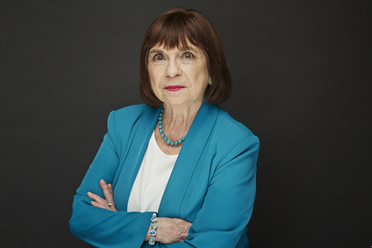
Barbara Krainovich-Miller
EdD ANEF FAAN PMHCNS
Professor Emerita
barbara.km@nyu.edu
1 212 998 5738
433 FIRST AVENUE
NEW YORK, NY 10010
United States
Barbara Krainovich-Miller's additional information
-
-
Barbara Krainovich-Miller, EdD, is a Professor Emerita at NYU Rory Meyers College of Nursing. She held many administrative roles during her 20+ years at NYU Meyers. Among her initiatives were embedding simulation in the BS and MS curricula, interdisciplinary initiatives at the NYU School of Medicine's simulation collaborations with nursing and medical students and their C21 Curriculum Committee, and involvement in interdisciplinary oral health initiatives with NYU Schools of Medicine, Dental, and Nursing. She has a track record of obtaining significant Advanced Nursing Education HRSA grants to increase the use of simulation in the classrooms and increase the diversity of students entering the Nursing Education and Psych Mental Health Nursing (PMH) MS programs.
Prof. Krainovich-Miller was inducted as a fellow of the Academy of Nursing. She was also among the inaugural inductees of the NLN’s Academy of Nursing Education Fellows in recognition of her enduring and sustained contributions and visionary nursing education leadership and expertise in competency-based education and evaluation, simulation, and interprofessional education, and her ability to influence healthcare policies and practices in nursing education. Krainovich-Miller continues to consult widely related to her areas of expertise, conduct research, and publish. She was chosen in 2021 by the Jonas Foundation for their first group of Subject Matter Experts (SMEs) in PMH to mentor their doctoral scholars across the country.
-
-
EdD in Nursing Education, Columbia University
-
-
Alumni Association of Hunter-Bellevue School of NursingAmerican Academy of NursingAmerican Association of Higher EducationAmerican Association of University ProfessorsAmerican Association of University WomenAmerican Dental Education AssociationAmerican Nurses Association via NY State Nurses AssociationAmerican Psychiatric Nurses AssociationCouncil for the Advancement of Nursing ScienceEastern Nursing Research Society of MARNA/NEON (Charter member)John Dewey Circle of the Teachers College, Columbia University Fundurses Association of the Counties of Long Island, District 14New York Long Island Nursing Diagnosis GroupNew York State Nurses AssociationNorth American Nursing Diagnosis Association InternationalNursing Education Alumni Association, Teachers College, Columbia University (Life Time Member)School of the Holy Child Alumni AssociationSigma Theta Tau International Alpha Omega ChapterSigma Theta Tau International - Upsilon ChapterSociety for Education and Research in Psychiatric-Mental Health NursingSociety for Simulation in Health CareSociety for Simulation in HealthcareSouthern New York League of Nursing
-
-
Publications
No publications could be found that match your search criteria.